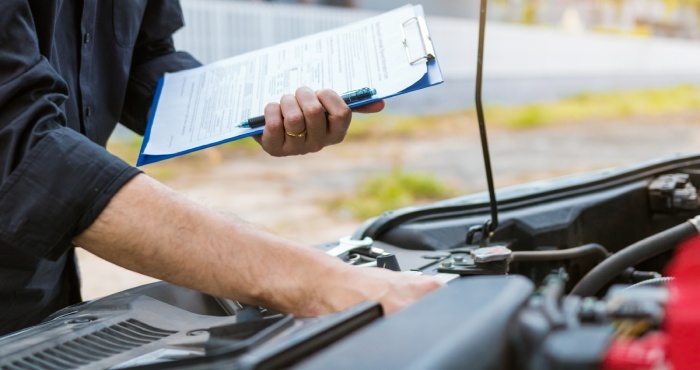Acquiring a vehicle, whether it’s brand new or pre-owned, ranks among the most significant investments for many individuals. With this purchase, there’s an inherent expectation of safety, dependability, and efficiency. However, what occurs when your car encounters major issues and the dealership shifts the blame onto you? Such a predicament can lead to feelings of frustration, anxiety, and even potential financial repercussions if not addressed.
This piece examines the actions you can take if a dealership holds you responsible for issues with your vehicle. We will discuss typical situations, legal safeguards like the Lemon Law, and actionable measures to ensure your consumer rights are upheld.
Understanding the Situation: Why Dealerships Shift the Blame
Car dealerships frequently seek to evade responsibility when a vehicle is found to be faulty. Rather than confronting the problem head-on, they may shift the blame onto you, the buyer. This can manifest in various ways:
- Accusing of Misuse: Dealerships might contend that you have mishandled the vehicle, suggesting that you drove it too harshly, failed to break it in correctly, or overloaded it beyond limits.
- Claiming Neglect in Maintenance: Another tactic is to assert that you neglected proper maintenance. They may argue that missed oil changes, ignored tire rotations, or insufficient servicing contributed to the issue.
- Attributing Issues to External Conditions: Some dealerships will cite external factors such as poor road conditions, severe weather, or environmental elements as the reasons for the defect, rather than acknowledging a manufacturing error.
- Challenging Aftermarket Modifications: If you have installed aftermarket components — such as enhanced tires, electronics, or suspension systems — the dealership might assert that these modifications caused or exacerbated the problem.
- Exploiting Warranty Exclusions: In certain situations, dealerships may take advantage of ambiguous language in warranty contracts, claiming that the defect isn’t covered due to “owner misuse” or “external factors.”
Although some lemon law claims may be valid, they are often used by dealerships as tactics to avoid fulfilling their obligations for repairs, replacements, or buybacks required under consumer protection laws.
Knowing Your Rights: Lemon Law and Consumer Protections
If your car dealership attempts to hold you responsible for faults in your vehicle, it’s crucial to be aware of the legal safeguards that are in place for your protection. Many states, California included, enforce Lemon Laws that protect consumers from being left with malfunctioning cars. A vehicle may be classified as a lemon if a defect significantly impacts its usability, safety, or worth, and if the dealership or manufacturer has been given several chances to fix it without success. In such situations, you may have the right to receive a refund, a new vehicle, or compensation for expenses such as towing and rental cars.
Alongside state laws, the federal Magnuson-Moss Warranty Act ensures that manufacturers and dealerships fulfill their warranty commitments. This legislation prevents them from unjustly rejecting claims, providing additional security for consumers facing ongoing vehicle problems. The combination of state Lemon Laws and federal warranty regulations forms a robust system for holding dealerships accountable when vehicles exhibit persistent defects.
Crucially, dealerships cannot simply absolve themselves of responsibility without substantiation. If they assert that you caused the problem, they must legally provide clear evidence linking your actions to the defect. Merely accusing you without sufficient proof is inadequate under the law. These protections are established to prevent unfounded claims and to ensure that consumers are not unfairly held liable for issues they did not cause.
Steps to Take When a Dealership Blames You
Should you encounter this scenario, here are some effective ways to react.
Remain Composed and Keep Records
When facing a disagreement with a dealership, it’s crucial to stay composed and maintain a professional demeanor. Document all communications meticulously, including repair receipts, service documents, emails, text messages, and phone call records. Capturing photos or videos of the issue can provide solid proof to support your case.
Examine Your Warranty and Agreement
Thoroughly review your purchase contract and the manufacturer’s warranty to grasp what is included and what is not. Be mindful of any maintenance stipulations and the procedures for resolving disputes outlined in the agreement. This understanding will empower you to counter any inaccurate assertions from the dealership.
Seek an Independent Evaluation
Bring your vehicle to a certified mechanic who operates independently for a comprehensive assessment. An impartial evaluation can determine if the problem stems from a manufacturing flaw rather than improper use. Such findings can be instrumental in contesting the dealership’s allegations.
Request Written Clarifications
Ask the dealership to document their claims in writing. Many dealerships shy away from this because they lack sufficient evidence to substantiate their accusations. Having written communication — or the absence thereof — can be advantageous in resolving conflicts.
Contact the Manufacturer
Should the dealership be uncooperative, consider reaching out directly to the manufacturer. Manufacturers are often willing to step in as they aim to safeguard their brand image. They may also ensure that warranty commitments are honored if the dealership does not take appropriate action.
Lodge a Formal Complaint
You are entitled to file complaints with your state’s consumer protection agency, the Better Business Bureau (BBB) Auto Line, or the Federal Trade Commission (FTC). These entities can look into your claims and may help mediate disputes. Submitting a formal complaint signals to the dealership that you are serious about defending your rights.
Consult with a Lemon Law Attorney
If the dealership continues to place the blame on you, consulting a Lemon Law attorney in San Diego is often the best step forward. Many San Diego Lemon Law lawyers offer free initial consultations and work on a contingency fee basis, meaning you won’t pay unless your case is successful. With their local expertise and experience, a Lemon Law attorney in San Diego can guide you through the legal process and fight for the compensation you are entitled to.
Preventing Dealership Blame
Although you can’t completely stop a dealership from deflecting responsibility, California Lemon Law lawyers recommend several proactive steps you can take to minimize their chances of doing so.
Adhere to Maintenance Guidelines
Follow the maintenance recommendations outlined in your owner’s manual. Maintain comprehensive service records, regardless of whether the work is performed at the dealership or an authorized service center.
Limit Modifications
If your vehicle is still under warranty, refrain from making unnecessary aftermarket modifications. Should you choose to install new parts, ensure they do not disrupt the fundamental systems of the vehicle.
Maintain Thorough Documentation
From the moment you acquire your vehicle, keep all contracts, receipts, inspection reports, and warranty information organized and accessible.
Act Promptly on Issues
Do not postpone addressing any defects. Report them immediately to either the dealership or the manufacturer. Delaying may give them a reason to claim that your inaction contributed to the problem.
Understand Your Rights in Advance
Educate yourself about your state’s Lemon Law and warranty rights before issues arise. Being informed will empower you if any disputes come up.
When to Consider Legal Action
If a dealership is unwilling to fulfill its commitments and continues to blame you instead, it might be time to think about pursuing legal action. This often occurs when multiple attempts to fix a defect are unsuccessful, and the problem continues. Additionally, dealerships may decline to provide written accounts or detailed records of repairs, leaving you without essential documentation to support your claim.
Another concerning sign is if the manufacturer does not intervene to address the issue after you’ve escalated it. Meanwhile, you might face financial burdens, such as expenses for rental cars, towing, or other unforeseen costs due to the faulty vehicle. These challenges can add to your frustration and stress.
In these situations, seeking advice from a Lemon Law attorney is crucial. These experts can assist in filing claims, negotiating fair settlements, and representing you in court if needed. Fortunately, many Lemon Laws stipulate that if you win your case, the manufacturer must pay for your attorney’s fees, allowing you to seek justice without the added worry of legal costs.
The Emotional and Financial Impact
Beyond the technical and legal aspects, being unfairly blamed for vehicle defects can create significant personal strain. Financial stress often arises from paying out-of-pocket for repairs, rental cars, or alternative transportation, adding unnecessary burdens to an already difficult situation.
On the emotional side, frustration builds when dealerships accuse or dismiss you, leading to a loss of trust in both the brand and the dealership. Recognizing these impacts highlights why it’s so important to stand up for your rights and ensure that blame-shifting tactics do not go unchallenged.
Lemon law attorney San Diego CA can provide valuable guidance if your dealership tries to hold you responsible for vehicle issues. It’s important to stay calm and avoid accepting blame without clear evidence. Dealerships sometimes attempt to deflect responsibility, but consumer protection laws such as the Lemon Law and the Magnuson-Moss Warranty Act exist to protect your rights.
To protect yourself from unfair treatment, be sure to keep detailed records, obtain independent assessments, contact the manufacturer when necessary, and consult with legal counsel to ensure your case is handled properly.







